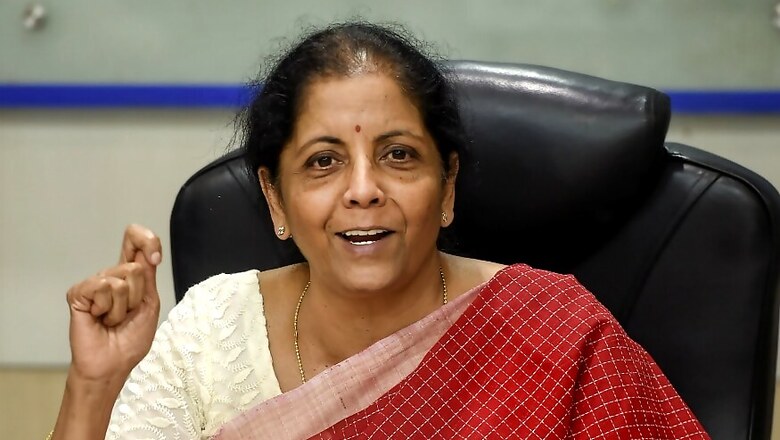India Seeks Integration of Anti-money Laundering, Counter-terror Financing with IMF Lending Policies

views
Washington: In an apparent reference to Pakistan, Union Finance Minister Nirmala Sitharaman on Saturday said the integration of the IMF's lending policies with key provisions like anti-money laundering and anti-terror financing can significantly enhance its member nation's compliance on these issues that pose threat to the global economy.
Sitharaman's remarks in her address to the annual meeting of the International Monetary Fund assumes significance in the backdrop of the international terror financing watchdog FATF putting Pakistan on notice on Friday, warning that it will be blacklisted if it does not control terror funding by February next.
"The macro-prudential policies' interface with anti-money laundering (AML) and countering financing of terrorism (CFT) could be useful in strengthening the integrated policy framework. The IMF's remit may not be as direct as of the Financial Action Task Force (FATF) in this respect," Sitharaman said.
"However, integrating AML-CFT with IMF lending policies can significantly enhance member's compliance on these issues that pose threat to the global economy," she said without naming Pakistan.
The IMF work can also cover elements such as secrecy jurisdictions, cyber-risks and tax havens, the minister added.
Sitharaman said the growing global financial integration is bringing in huge opportunities but is also introducing uncertainties and risks. Capital flows benefit countries in terms of higher investment and risk sharing, but at the same time, it can have adverse effect on countries with weak policies and institutions.
Noting that the IMF plays a significant role in assisting the member countries to assess their macro-economic stability and mitigate financial vulnerability, she said the IMF's proposal to come up with an Integrated Policy Framework is a step in the right direction.
"An effective surveillance mechanism helps countries to identify risks, both global and domestic, and suggest ways to prevent such risks and mitigate their adverse effects," she said.
India looks forward to how the IMF proposes to factor in the interactions between monetary, exchange rate, macro-prudential, and capital flow management policies in its policy advice, she noted.
In this context, it is very important to build in sufficient policy flexibility for the EMEs (emerging market economies), not just because they are heterogeneous group, but also because they need a wide array of tools which can be contextually used as per needs," Sitharaman said.
This has been the case especially when there has been fundamental misalignment of exchange rate, caused by surges in capital flows. Often sudden stops and reversals of capital flows follow these surges that erode macro-financial stability very quickly, the finance minister said.
"We believe that the policy option of EMEs to preemptively use macro-prudential measures (MPMs) and capital flow measures (CFMs) need to be fully recognised in any integrated policy framework," she said.



















Comments
0 comment